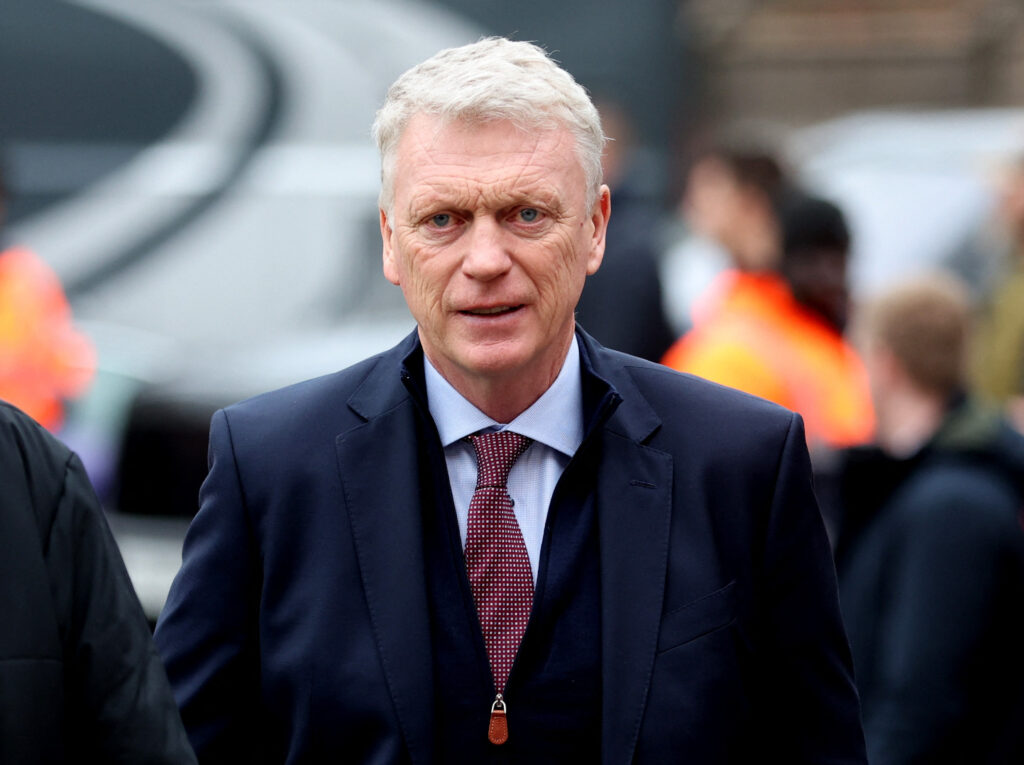
Soccer Football - Premier League - Nottingham Forest v West Ham United - The City Ground, Nottingham, Britain - February 17, 2024 West Ham United manager David Moyes arrives before the match Action Images via Reuters/Ed Sykes/ File photo
Worst Irony: formal west ham manager David Moyes has horribly” Criticise Julen Lopetegui successful transfer” with nasty reasons…
David Moyes has added a layer of irony to his comments about West Ham United‘s transfer business. The former Hammers manager, who was criticised for his own transfer strategies, has now expressed surprise at the club’s extensive summer spending.
Moyes’ comments highlight the stark contrast between his approach and that of his successor, Julen Lopetegui. While Moyes preferred to work with a smaller squad, Lopetegui has embraced a more proactive transfer policy.
David Moyes, West Ham United’s manager, is known for his pragmatic approach to football management. However, his recent comments criticizing the club’s transfer window, despite its apparent success, have sparked debate among fans and pundits. This situation presents an intriguing irony, as West Ham’s summer business seemed to address many of the team’s needs on paper, yet Moyes remains publicly unsatisfied.
### A Summer of Success
West Ham United’s 2023 summer transfer window was largely considered a success by football analysts. After selling their talismanic midfielder Declan Rice to Arsenal for a record fee, the club reinvested in the squad, bringing in several key players. Edson Álvarez, a versatile defensive midfielder from Ajax, and James Ward-Prowse, a proven Premier League performer from Southampton, were among the standout additions. Both players addressed the need for solidity in midfield following Rice’s departure.
Additionally, West Ham strengthened other areas of the squad, signing Mohammed Kudus, a highly-rated attacking midfielder, and Konstantinos Mavropanos, a solid defender. These acquisitions, combined with the presence of seasoned campaigners like Jarrod Bowen and Michail Antonio, gave the squad a fresh and competitive look. On the surface, this would seem like a positive outcome, positioning West Ham to challenge for a higher league finish and perhaps make a deep run in Europe.
### Moyes’ Concerns
Despite these moves, Moyes has not been entirely satisfied. His public comments suggest a disconnect between the players brought in and the type of football he envisions. Moyes has always favored a structured, disciplined approach, emphasizing defensive solidity and direct play. The new signings, particularly Kudus and Ward-Prowse, are more technically gifted players who thrive in possession-based systems. Moyes’ criticism may stem from a feeling that the squad is becoming less aligned with his tactical philosophy.
Furthermore, there are questions about how much control Moyes had over these signings. Reports suggest that West Ham’s board, particularly their sporting director, played a significant role in the recruitment process. If Moyes felt that his input was overlooked, his dissatisfaction could be as much about the process as the players themselves.
### The Irony
The irony in Moyes’ criticism lies in the fact that West Ham’s transfer window was, by most accounts, a success. The club addressed key areas of weakness, spent wisely, and brought in players who have the potential to make an immediate impact. Yet, the manager, who should be the most pleased with this outcome, remains one of its biggest detractors.
This situation highlights the complexities of modern football management. It is no longer just about assembling a group of talented players; it’s about aligning those players with the manager’s vision and style. If there is a disconnect, even a seemingly successful transfer window can create tension within the club.
David Moyes’ criticism of West Ham’s successful transfer window is a fascinating case of irony in football. On paper, the club has done everything right, but the manager’s dissatisfaction reveals deeper issues about control, philosophy, and the evolving nature of the game. Whether Moyes can integrate these new signings into his system or whether this disconnect will lead to further tension remains to be seen. In either case, this episode serves as a reminder that success in football is often more complex than it appears.







